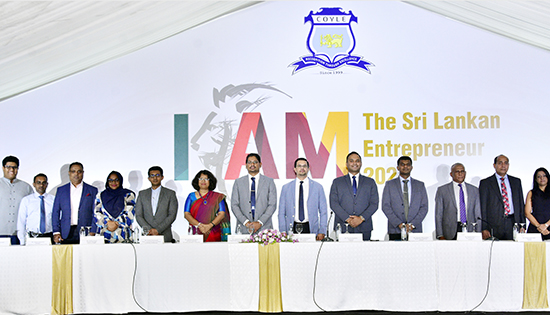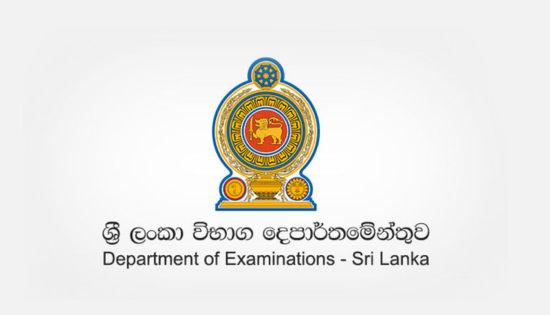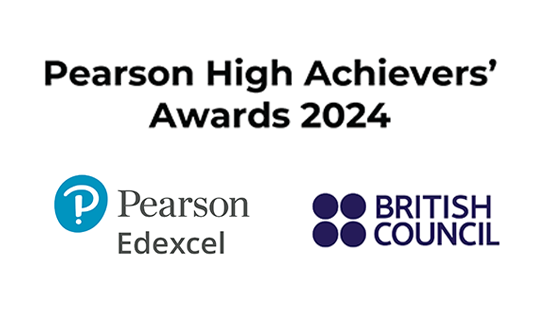In Search of a Cheerful Students’ Society in Sri Lanka
Let Us Create a Bright Future for Our Children

As we celebrate International Children’s Day on the 1st of October, we are reminded of the tremendous impact that science has had on human welfare, offering a world filled with instant comforts. Yet, despite these advancements, happiness seems elusive, especially among children in Sri Lanka. Worries and stress appear to be escalating, with depression becoming one of the leading causes of concern in this decade. What can we do to change this?
While globalization and modernization play a part, the root of the problem may lie in the way children are brought up. Excessive pampering during childhood could be contributing to this crisis. Another pressing issue is the alarming trend of students neglecting their mother language, disrespecting their parents, teachers, elders, religion, and culture. What a pity! But more importantly, what can we do?
Parents play a pivotal role in shaping their children’s future. They must serve as role models, teaching their children to be good citizens of our motherland. However, in today’s world, many parents are working, leaving children in daycare or with limited time to engage with them. As a result, children often isolate themselves, becoming addicted to video games or television. This early addiction can impact their academic performance, and many leave school as failures, continuing this trend into adulthood, often leading to harmful habits like smoking and alcohol consumption.
It is not too late to take corrective action. Parents should fully nurture their children up to the age of three, but after that, focus should shift toward education and discipline. It is essential for parents to instill family values and ensure obedience. Teachers, too, have a crucial role. They must treat all students equally, paying extra attention to those who are vulnerable to mischief, especially students in the back benches. Proper guidance and coaching can turn these students into successful individuals.
Managing Time Wisely to Avoid Stress and Improve Productivity
Time management is another key to reducing stress. Time can be categorized into three types: “Time Investment” (studying, working), “Time Spent” (traveling, talking), and “Time Wastage” (idling, gossiping). By investing more time in productive activities, minimizing unnecessary time spent, and avoiding time wastage, we can live more fulfilled lives. To achieve this, we must set realistic, SMART goals specific, measurable, achievable, relevant, and timely. With clear objectives, there is less time to worry or be depressed. A balanced approach to personal, family, work, social, community, and spiritual life will help avoid many of the problems that lead to stress and low productivity.
Implicit Faith in God
One of the reasons children neglect their religion is the lack of a strong example set by their parents. Families should pray together daily and visit sacred institutions regularly, but they should not pray for wealth, power, or fame—these are stress-inducing desires. Instead, they should seek peace, love, and serenity. With these, all other blessings, including wealth, will follow.
Conquering Depression: The Primary Prevention
Life is unpredictable. Sometimes we get what we want immediately; other times, it takes longer, or we may never get what we aimed for. We must learn to accept this. Just as a cyclist moves forward with every pedal, and a rubber ball bounces back after a brief delay, we too must understand that results don’t always come instantly. Sometimes, like a seed waiting to bear fruit, success takes time. Focusing on the action rather than the outcome can prevent stress and depression. It’s crucial to remember that while a little stress can motivate us to act, too much can be harmful.
While psychiatric wards are being expanded for those suffering from mental health issues, there is also a great need for counseling centers in hospitals. More importantly, we must implement strategies for the primary prevention of depression, involving medical professionals and counselors.
Parents’ and Teachers’ Duties
Parents and teachers must instill values, discipline, and good attitudes in children. By leading by example and living ethically, they can help children grow into responsible citizens. The government and education ministry should introduce ethics and values into the school curriculum, making mother languages and literatures compulsory. As the Sinhala proverb says, Padithakaa, Pattamthakaavedanokkaranna, which translates to, “Respect those who are learned and wise.”
Students’ Cardinal Duty
It is essential for students to respect and follow the guidance of their parents, elders, teachers, and mentors. By doing so, they can avoid depression and lead a cheerful life. Studying their religion, mother language, and literature will enrich their knowledge and help them face the challenges of life, both now and in the future.
Create Changes to Conquer the World
We must embrace change, not resist it. Change brings growth and prosperity, and those who can create change can conquer the world. Whether in schools, workplaces, or society, change is inevitable. As the saying goes, “Work while work and play while play, that is the way to be merry and cheerful.”
A Message to Parents: Children Are Our Treasure Trove
We can repay our debt to our motherland by building a better future for our children. The future is not something waiting to be discovered it is something waiting to be created. It is in our hands. As Sri Lankans, we must act as good ancestors, linking our ideals of service with the generations to come. Let us work together to build a future with vision and action. Let us raise our children to be the leaders of tomorrow.
I take this opportunity to wish all our children a happy, bright, and prosperous future. May God bless you and your families.

By Maruthai Ravindhiran
(Maruthai Ravindhiranis a Marketing, Training and Personal Development and Change Management Consultant. Ravindhiranis also a reputed Language and Communication Specialist and an experienced English Teacher and a Life Transformational and Life Management Coach.)
Related News
ACCA celebrates 120 years and counting
Helen Brand OBE, chief executive of ACCA and Nilusha Ranasinghe Head of South Asia for ACCA Global accountancy body marks major milestone…
Read MoreVictory for ANC Education on UN World Human Rights Day
The Capital Maharaja Group (CMG) held its third consecutive year of Inter University Human Rights Debates this year. This witnessed private and…
Read MoreSLIIT achieves historic success and shines as star performerat 26th National ICT Awards – NBQSA 2024
SLIIT achieved historic success and shone brightly as a star performer at the 26th National ICT Awards - NBQSA 2024, held recently.…
Read MoreTriple Championships for Gateway College in Football
Gateway College Colombo once again demonstrated their dominance in the recently concluded Under-20 Inter-International Schools Football Tournament, held at Gateway College Ratmalana from…
Read MoreFastest growing international exam board OxfordAQA appoints Country Manager for Sri Lanka and the Maldives
Panchalika KulatungaCountry Manager,Sri Lanka and the Maldives - OxfordAQA OxfordAQA — a partnership between Oxford University Press, a department of the University…
Read MoreCourses
-

IMC – Bachelor of Psychology
IMC Education Overview IMC Campus in partnership with Lincoln University College (LUC) Malaysia offers Bachelor of Psychology Degree right here in Sri… -

ANC – BA (Hons) International Business Management (Top-Up)
ANC Education Overview Designed in partnership with public and private business organizations, this program develops one’s ability to critically evaluate business models… -

IIT – BSc (Hons) Computer Science
IIT Campus Overview BSc (Hons) Computer Science provides a solid foundation and training regarding the fundamentals of the computer science field, along… -

APIIT – BSc (Hons) Cyber Security
APIIT Sri Lanka Overview Our BSc (Hons) Cyber Security award is designed to launch your future career in the protection of software… -

ICBS – BSC (Hons) Business Management with Marketing Management
ICBS Overview The BSc (Hons) Business Management with Marketing program, awarded by Queen Margaret University (QMU), is a highly regarded degree that… -

UTS – Diploma of Science
UTS College Sri Lanka Overview The Diploma of Science is designed to empower you to apply scientific thinking and analysis to important… -

CSA – Master of Architecture and Environmental Design
City School of Architecture Overview The Master of Architecture and Environmental Design Degree at CSA is awarded by the University of the… -

APIIT – BSc (Hons) International Business Management
APIIT Sri Lanka Overview Increasingly businesses are becoming more and more international. This requires business management professionals to have knowledge, skills and… -

IIT – BSc (Hons) Artificial Intelligence And Data Science
IIT Campus Overview The BSc (Hons) Artificial Intelligence and Data Science course is awarded by Robert Gordon University (RGU) in the UK… -

ICBS – International Degree Foundation in Business / IT
ICBS Overview The Scottish Qualification Authority (SQA) is a globally recognized organization dedicated to education and qualification development. SQA is responsible for… -

APIIT – BA (Hons) Finance and Business Enterprise
APIIT Sri Lanka Overview Finance and accounting are no longer just about taxation and the management of financial capital. This award will… -

APIIT – MBA General
APIIT Sri Lanka Overview The MBA is awarded by Staffordshire University, UK. This award is an advanced course of study in management… -

ANC – LLM in International Business & Commercial Law
ANC Education Overview This course is designed for graduates of law, business and finance in a legal or a corporate job role… -

AOD – BA (Hons) Fashion Design and Marketing
Academy of Design Overview The syllabus is from the UK’s Northumbria University, as one of their most revered flagship programmes and is… -

APIIT – MSc. Marketing Management
APIIT Sri Lanka Overview This MSc Marketing Management degree – awarded by Staffordshire University, UK is an advanced course of study in…
Newswire
-

SJB considers No-Confidence Motion against Speaker
ON: December 11, 2024 -

Celebrating Sri Lanka’s Visionaries: COYLE’s
ON: December 11, 2024 -

SL tour of new Zealand: Schedule announced
ON: December 11, 2024 -

SolarX Challenge : Sri Lankan startups lead Asia-Pacific
ON: December 11, 2024 -

Gas Cylinder : New National List MP’s name gazetted
ON: December 11, 2024










